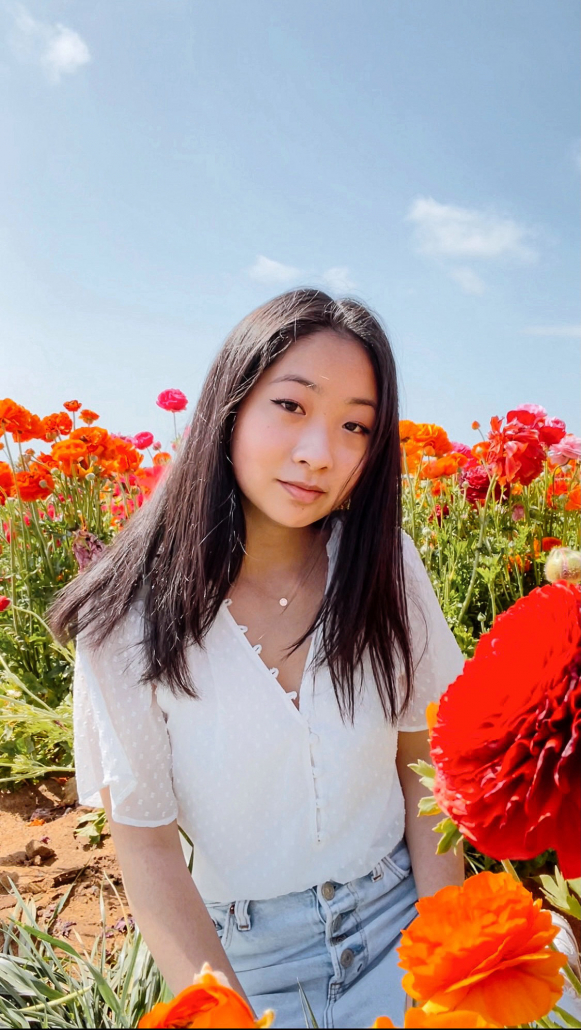USC freshman joins intercollegiate coalition that advocates for Asian students

With the recent rise in hate crimes against Asians and Asian Americans, Yi-Ann Li found that now, more than ever, is an important time to advocate for the Asian community. So when Li, a freshman majoring in psychology, heard about a new opportunity for advocacy with the Intercollegiate APIDA Coalition, she knew she wanted to get involved.
The ICAC consists of college Asian Pacific Islander Desi American student groups across the country aiming to fight against anti-Asian racism and the rise in violence directed at Asian communities. As USC’s representative to the coalition, Li brings her perspective on what USC could do to better support the Asian community and compares this to actions taken at other universities. The coalition’s discussions ultimately contribute to the “overarching perspective” on what universities can do to better support their Asian and Asian American students, Li said.
“I felt like joining this coalition was a really good way to spread the word and educate people … on the importance of advocating for the Asian community, on the importance of learning about what’s happening and learning about how this spike in Asian hate is not a new thing that started just last year,” Li said.
The coalition formed in early March after Kobi Khong, a freshman at Johns Hopkins University, reached out to APIDA student organizations on college campuses around the country to come together in response to the rise in Asian hate.
“What we coalesced around was this idea of what is happening in the news [and] what you’re seeing on social media,” said Abigail Jiang, a sophomore at the California Institute of Technology majoring in material science. “Our goal so far has been to address these incidents on our campuses, through our campuses, [by] talking to administration and trying to do collaborative work.”
One way the ICAC has worked to achieve their goal is by releasing a statement of specified demands directed towards universities to fight against Asian hate.
Kesavan Srivilliputhur, a sophomore at Princeton University majoring in chemistry who co-led the writing of the statement, said that there was tension during the process of writing, as a range of progressive political views were represented and many organizations weren’t allowed to endorse anything partisan.
“We focused our demands on universities because that also helped us keep away from more national politics and partisanship,” Srivilliputhur said.
Demands include calling for universities to release a statement condemning the violence and racism against Asians and Asian Americans, offer Asian American studies courses and ethnic studies programs, disaggregate data of the Asian student population by ethnicity and hire culturally competent mental health professionals.
Currently, the ICAC is holding a fundraiser for Asian Americans Advancing Justice (AAJC), an agency with the mission to advance civil and human rights for Asian Americans. So far, the fundraiser has raised almost $4,000 towards its goal of $20,000.
“[We picked AAJC] because AAJC has had a really solid history of directly helping communities in terms of legal advocacy for immigration rights,” Jiang said.
Another main reason the coalition chose AAJC was as a result of the organization’s response to the mid-March racially motivated shootings in Atlanta. Jiang said she saw all the work being done by AAJC sub-chapters, both inside and outside of Atlanta, to support the community.
While the ICAC formed in response to negative events, it also showed how well the Asian American community could come together, said Srivilliputhur.
“I would have never met these people if we did not all have this drive to come together to fight back against white supremacy and against Asian hate,” he said.
For Li, who also advocates for the Asian and Asian American community at USC as a president of Dear Asian Youth, a nonprofit organization dedicated to empowering the narratives of the Asian youth, and an intern for the Asian Pacific American Student Assembly, her involvement with the ICAC and working alongside other students was “very humbling.”
“I personally have met a lot of burdens and obstacles with trying to, as an individual, educate everyone around me because it gets exhausting … so I feel like there’s strength in numbers,” Li said. “I feel like it’s about time for the Asian community to really demand to be heard.”
Correction: A previous version of this article misstated Kesavan Srivilliputhur’s name as Kesavan Srivilliputhu. The Daily Trojan regrets this error.

